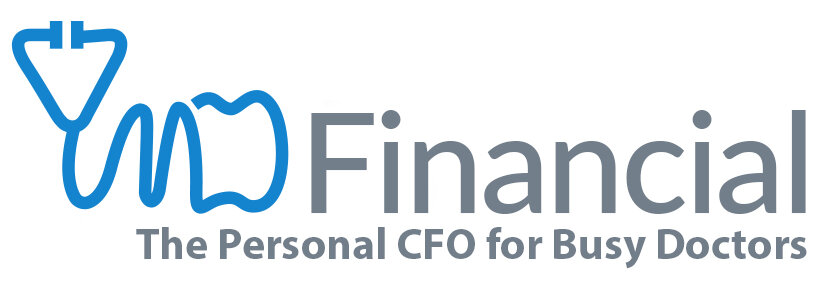Dear Clients,
Now that summer is coming to an end and students are headed back to school, it’s time to start thinking about year-end finances:
As we enjoy the fall colors and prepare for the busy holiday season, we are reminded that it’s time once again to make sure our year-end investment checklist is complete.
Whether you’ve had big changes this year or not, here are a few important items to consider:
Funding Backdoor Roths
If you have not already funded your Roth IRA via the backdoor Roth conversion strategy for 2024, please reach out to us with what you’d like to do. A backdoor Roth applies to those households earning $230,000 or more, single filers making over $146,000, or those married filing separate tax returns.
Please be aware that there is processing time involved, so we need to get your account funded and converted to Roth no later than mid-November. If you’re going to be running late, please reach out to us and we’ll come up with a game plan.
Roth Conversions
We are big fans of getting more money in the tax-free bucket. For those of you with funds in your Traditional IRA or with funds in a former tax-deferred employer plan(s), you might consider a Roth Conversion. We need to have you sign paperwork by mid-November to convert in 2024. Be aware that when you do a Roth Conversion, the amount converted is a part of your ordinary income for the year. If you do a Roth Conversion in 2024 expect a larger tax bill in April 2025.
You might be a good candidate for a Roth Conversion if any of the following apply:
You just got done with your training. You likely have half of the year at a lower income, and thus you’re in a lower tax bracket than future years
You expect you’re in a lower tax bracket today than the future
You don’t have a lot of tax-free assets currently
You expect we’re in a lower tax environment relative to where tax rates will be in the future
You plan to convert partial amounts within your current marginal tax rate
Some of you may have a large amount of funds in your traditional IRA or in a former tax-deferred employer plan(s). It is not a necessity to convert the entire amount at one time. You could choose instead to convert portions of those funds over the next year(s). Converting the funds will help build your tax-free bucket and open the possibility of using the backdoor Roth strategy in the future.
Regular Roth IRAs
If you’re doing a normal Roth IRA, known as a direct Roth IRA contribution, then your deadline for funding is mid-April 2025. You can fund a regular Roth IRA if your household makes under $230,000 or you are a single filer making under $146,000. Reminder, there are more complex stipulations if you plan to file your tax return as married filing separately. We recommend you reach out to your financial advisor to see if you are eligible to contribute directly to your Roth IRA.
Solo 401ks, SEP IRAs
It’s very popular for those of you with 1099 income to fund tax-deferred or Roth solo plans such as an Indy/Solo 401k, Indy/Solo Roth 401k, or SEP IRA plans. Depending on your income you might be able to put away as much as $69,000. We suggest you check with your tax accountant for your deadline, but generally funding can be done between January and mid-April 2025. However, in some instances the Indy/Solo 401ks or Indy/Solo Roth 401ks need to be funded by the end of the tax year, or December 31st. If this is your situation, please get back to us no later than mid-November. Amounts can vary based on the amount of 1099 income.
Required Minimum Distributions (RMDs)
Depending on your age, you may be required to withdraw a certain amount of money from your retirement accounts every year. These are called Required Minimum Distributions (RMDs). The age on this has changed from years past due to the SECURE Act 2.0, but if you qualified for an RMD last year, you likely still qualify for one this year.
Those who turned 73 years old in 2024 are required to make a withdrawal from the following account types before April 1st, 2025:
· Traditional, SEP, or SIMPLE IRAs
· 401k, 403b, or 457b plans
· Profit Sharing or Defined Contribution plans
Inherited Roth IRAs sometimes require a distribution even though you, the beneficiary, are not over the age of 73. If you qualify or think you may qualify for an RMD this year and have not already taken the distribution, please reach out to us before mid-November to ensure we meet the deadline.
Thank You for Another Wonderful Year!
It has been a great year here at MD Financial Advisors. We’ve enjoyed getting to see our clients’ families grow, watching our physicians and dentists take on new roles, and celebrating milestones along with them. We are honored to be able to work with you, your families, and your colleagues.
Please note that our offices are especially busy this time of year, so it may take us a little longer than usual to get back to you.
Reach out if you have any questions and have a wonderful fall!
Katherine, Josh, Ben, Ian, and the MD Financial Team
The views expressed are those of the author as of the date noted, are subject to change based on market and other various conditions. Material discussed is meant to provide general information and it is not to be construed as specific investment, tax, or legal advice. Keep in mind that current and historical facts may not be indicative of future results. The information contained in our presentations has been compiled from third-party sources and is believed to be reliable; however, accuracy is not guaranteed.


